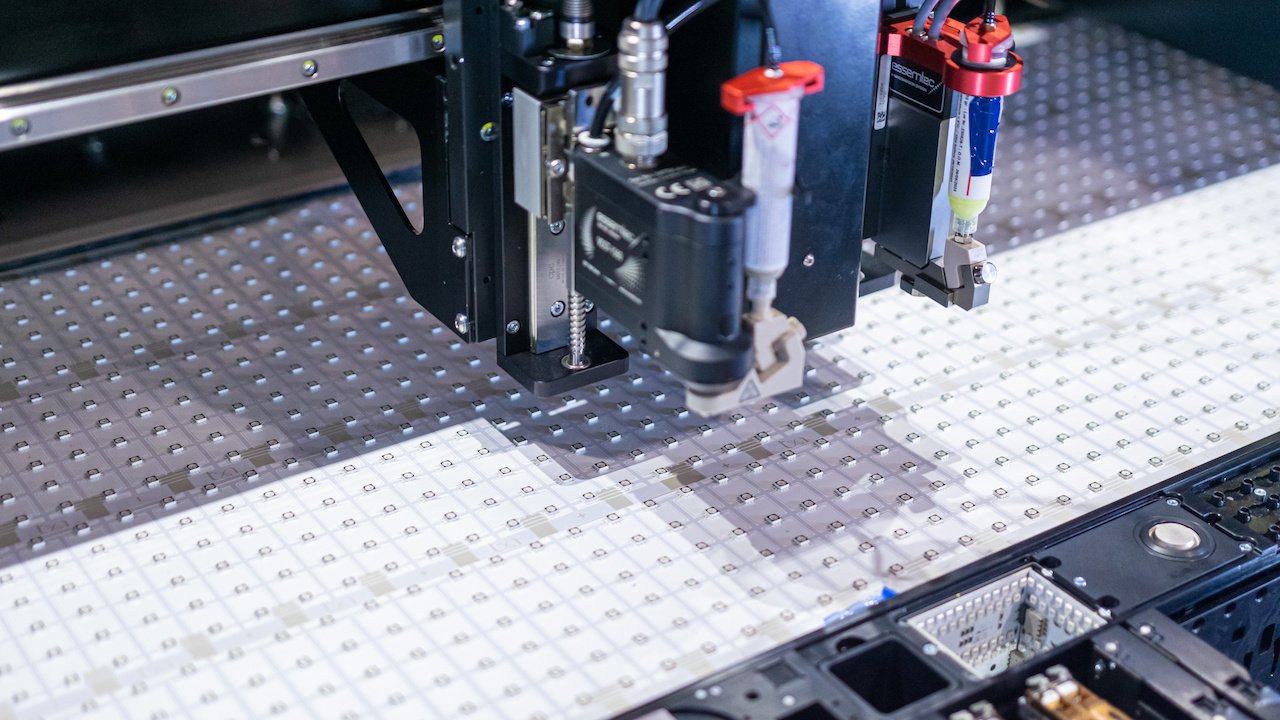Dutch startup TracXon has secured €4.75 million in seed funding to industrialise its hybrid printed electronics (HPE) technology, aiming to replace traditional printed circuit boards (PCBs) with more flexible and environmentally sustainable alternatives.
The round was led by Invest-NL’s Deep Tech Fonds, contributing €2 million, alongside investments from DeepTechXL and the Brabantse Ontwikkelings Maatschappij (BOM).
Founded in 2022 and spun out of research institute TNO, TracXon has developed a roll-to-roll (R2R) manufacturing process that prints electronics directly onto flexible and recyclable films. The process eliminates the need for copper, solder, or toxic chemicals, key components in conventional PCB production.
“TracXon is bringing about a fundamental change in electronics manufacturing. From traditional and polluting to efficient and sustainable,” said Ashok Sridhar, Co-founder and CEO of TracXon. “This investment round brings us closer to our goal of replacing at least 10% of PCBs with our HPE technology by 2033.”
“This represents approximately €15 billion worth of circuits per year. Our technology is a huge step towards ‘ubiquitous electronics’ – electronics that are all around us – in a socially responsible way.”
The startup’s flagship product is the R2R VIA Printer, a machine designed to print double-sided electronic circuits at scale. The company plans to roll out the first commercial units by mid-2027, using the new capital to scale production and build out custom equipment to reduce costs and carbon emissions by as much as 80 percent, according to internal estimates.
PCBs are a cornerstone of modern electronics, but their manufacture is resource-intensive and polluting. The global PCB market is projected to reach over €150 billion by 2030, driven by growth in IoT, MedTech, automotive, and consumer electronics, all sectors TracXon is actively targeting.
The demand for lighter, thinner, and more versatile electronics is also on the rise, especially in areas like wearable biosensors, flexible displays, and embedded smart surfaces.
“TracXon’s technology opens doors to applications that were previously unimaginable. Think of medical plasters with integrated biosensors or smart, interactive surfaces in cars,” said Liz Duijves, Investment Manager at Invest-NL.
“The fact that their technology is also much more sustainable than traditional electronics makes us, as Deep Tech Fonds, not only proud but also hopeful about where the industry can go.”
Despite being in early stages, TracXon has already attracted over 20 co-development partners and customers from more than 10 countries. By offering printed electronics as a service, it allows clients to integrate next-gen tech into their products without investing in expensive production infrastructure.
The funding follows a broader push in the Netherlands to boost deep tech startups. Initiatives such as the collaboration between TNO, Techleap, and Invest-NL are building a national support system for high-impact, high-tech innovation.
“We are proud of this achievement. TracXon is a good example of how TNO innovations can grow into impactful companies,” said Hans Boumans, director of TNO Ventures. “TNO invests in technologies that create a better world, and TracXon contributes directly to a more sustainable future by fundamentally changing how electronics are produced.”



Would you like to write the first comment?
Login to post comments